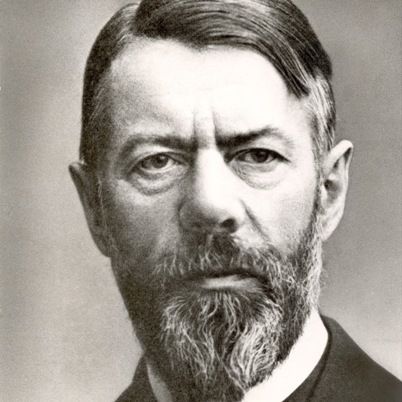You are viewing the article Max Weber at Tnhelearning.edu.vn you can quickly access the necessary information in the table of contents of the article below.

(1864-1920)
Who Was Max Weber?
Max Weber was a precocious child. He went to university and became a professor, but suffered a mental breakdown in 1897 that left him unable to work for five years. In 1905 he published his most famous work, The Protestant Ethic and the Spirit of Capitalism. He returned to teaching in 1918 and died in 1920. He is considered the father of modern sociology.
Early Life and Education
Maximilian Karl Emil Weber was born on April 21, 1864. His father, Max Weber Sr., was a politically active lawyer with a penchant for “earthly pleasures,” while his mother, Helene Fallenstein Weber, preferred a more ascetic lifestyle. The conflicts this created in their marriage acutely influenced Max. Still, their house was full of prominent intellectuals and lively discourse, an environment in which Weber thrived. Growing up, he was bored with school and disdained his teachers, but devoured classic literature on his own.
After graduating from high school, Weber studied law, history, philosophy and economics for three semesters at Heidelberg University before spending a year in the military. When he resumed his studies in 1884, he went to the University of Berlin and spent one semester at Göttingen. He passed the bar exam in 1886 and earned his Ph.D. in 1889, ultimately completing his habitation thesis, which allowed him to obtain a position in academia.
Early Career
Weber married a distant cousin, Marianne Schnitger, in 1893. He got a job teaching economics at Freiburg University the following year, before returning to Heidelberg in 1896 as a professor. In 1897, Max had a falling out with his father, which went unresolved. After his father died in 1897, Weber suffered a mental breakdown. He was plagued by depression, anxiety and insomnia, which made it impossible for him to teach. He spent the next five years in and out of sanatoriums.
When Weber was finally able to resume working in 1903, he became an editor at a prominent social science journal. In 1904, he was invited to deliver a lecture at the Congress of Arts and Sciences in St. Louis, Missouri and later became widely known for his famed essays, The Protestant Ethic and the Spirit of Capitalism. These essays, published in 1904 and 1905, discussed his idea that the rise of modern capitalism was attributable to Protestantism, particularly Calvinism.
Later Work and Death
After a stint volunteering in the medical service during World War I, Weber published three more books on religion in a sociological context. These works, The Religion of China (1916), The Religion of India (1916) and Ancient Judaism (1917-1918), contrasted their respective religions and cultures with that of the Western world by weighing the importance of economic and religious factors, among others, on historical outcomes. Weber resumed teaching in 1918. He intended to publish additional volumes on Christianity and Islam, but he contracted the Spanish flu and died in Munich on June 14, 1920. His manuscript of Economy and Society was left unfinished; it was edited by his wife and published in 1922.
Legacy
Weber’s writing helped form the basis of modern sociology. His influence runs throughout the realms of sociology, politics, religion and economics.
QUICK FACTS
- Name: Max Weber
- Birth Year: 1864
- Birth date: April 21, 1864
- Birth City: Erfurt (Prussia)
- Birth Country: Germany
- Gender: Male
- Best Known For: Max Weber was a 19th-century German sociologist and one of the founders of modern sociology. He wrote ‘The Protestant Ethic and the Spirit of Capitalism’ in 1905.
- Industries
- World Politics
- Journalism and Nonfiction
- Education and Academia
- World War I
- Christianity
- Astrological Sign: Taurus
- Schools
- University of Berlin
- Göttingen
- Heidelberg University
- Nacionalities
- German
- Death Year: 1920
- Death date: June 14, 1920
- Death City: Munich
- Death Country: Germany
Fact Check
We strive for accuracy and fairness.If you see something that doesn’t look right,contact us!
CITATION INFORMATION
- Article Title: Max Weber Biography
- Author: Biography.com Editors
- Website Name: The Biography.com website
- Url: https://www.biography.com/scientists/max-weber
- Access Date:
- Publisher: A&E; Television Networks
- Last Updated: July 8, 2020
- Original Published Date: April 2, 2014
QUOTES
- The fate of our times is characterized by rationalization and intellectualization and, above all, by the disenchantment of the world.
- No sociologist should think himself too good, even in his old age, to make tens of thousands of quite trivial computations in his head and perhaps for months at a time.
Thank you for reading this post Max Weber at Tnhelearning.edu.vn You can comment, see more related articles below and hope to help you with interesting information.
Related Search:



